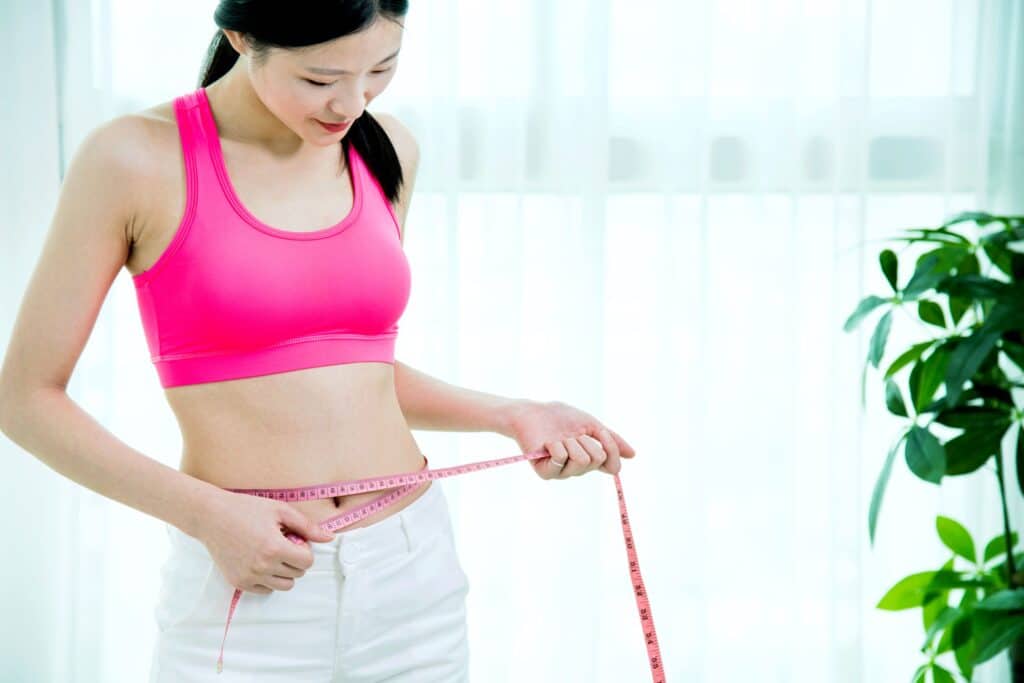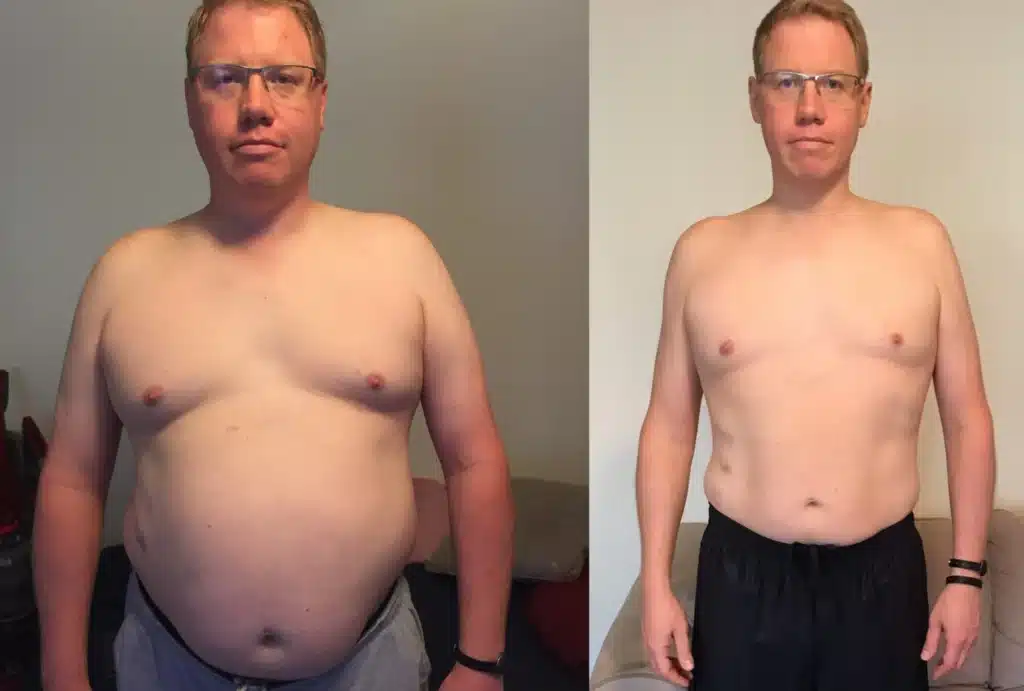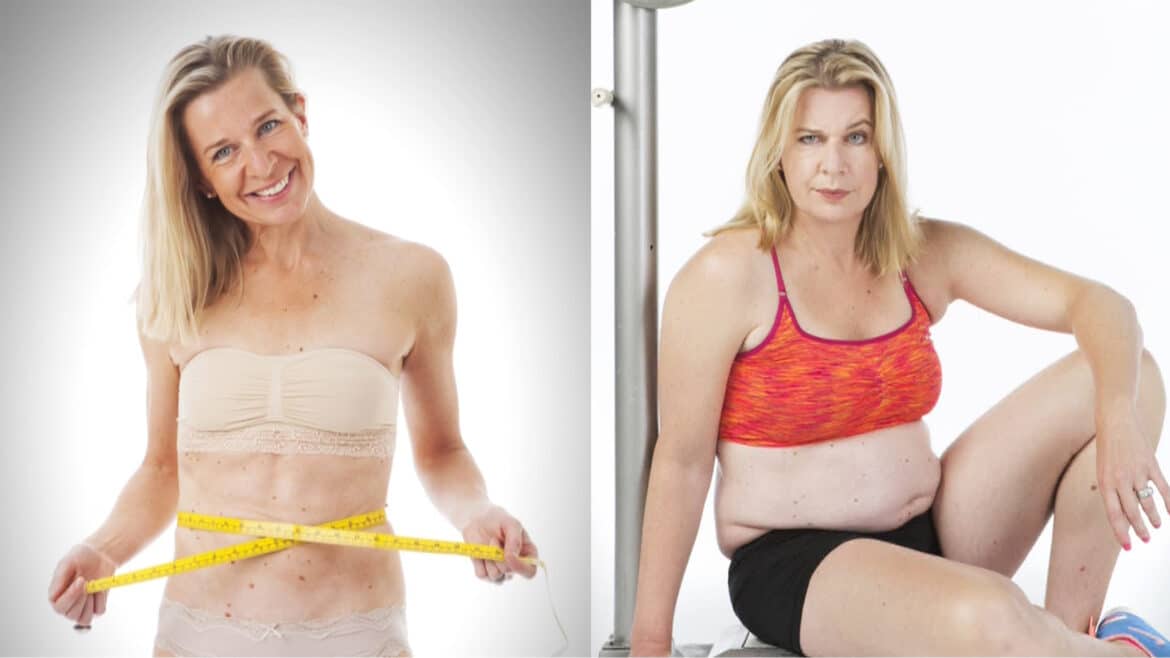Introduction
Can Accutane Cause Weight Loss: Accutane’s ability to induce weight loss is a complex and multi-faceted topic that warrants exploration. To understand this phenomenon, one must delve into the drug’s mechanism of action, its side effects, and the potential ways it may affect a person’s body weight. Moreover, it is crucial to differentiate between intended therapeutic outcomes and unintended side effects.
Accutane is a derivative of vitamin A, known for its role in skin health. It operates by targeting the sebaceous glands, reducing oil production, and addressing the underlying causes of severe acne, such as inflammation and abnormal keratinization of hair follicles. While this makes Accutane highly effective in treating acne, its mechanisms may also have secondary effects on the body, including the potential for changes in weight. One of the primary reasons behind the association between Accutane and weight loss is its impact on the gastrointestinal system.
This medication can cause a range of gastrointestinal side effects, including nausea, diarrhea, and appetite suppression. These side effects may lead some individuals to eat less, resulting in weight loss over the course of their treatment. However, it is essential to recognize that not everyone who takes Accutane experiences weight loss, and the extent of any weight change can vary widely among individuals. Furthermore, the relationship between Accutane and weight loss is not fully understood, and research on this topic is ongoing. The stage for a more comprehensive exploration of the potential link between Accutane and weight loss, shedding light on the complexities surrounding this issue and providing a balanced perspective for those seeking answers and guidance on their Accutane journey.

Does isotretinoin affect weight loss?
Weight loss is not listed as a side effect of Accutane nor is weight gain. According to the U.S. National Library of Medicine, it is sometimes used to treat other skin conditions or even some forms of cancer but is not used as a weight-loss drug.
Isotretinoin and Appetite
One of the primary concerns regarding isotretinoin and weight loss revolves around its potential impact on appetite. Some individuals have reported a decreased appetite while taking the medication. This loss of appetite may lead to reduced food intake, resulting in weight loss for some patients.
A decrease in appetite while on isotretinoin. Many individuals continue to have normal or increased appetites, and any weight changes observed may be unrelated to the medication itself.
Weight Loss or Redistribution
Another aspect to consider is whether the observed changes in weight are due to actual fat loss or a redistribution of body fat. Isotretinoin can cause changes in the way fat is distributed in the body, with some patients reporting a decrease in facial fat, which may create the illusion of weight loss. These changes are usually reversible after discontinuing the medication.
Clinical Studies and Scientific Evidence
Scientific research on the relationship between isotretinoin and weight loss is limited, and the available studies do not provide conclusive evidence of a direct causal link. While some studies have reported weight changes in individuals taking isotretinoin, the results have been inconsistent, with some showing weight gain and others indicating weight loss.
Does Accutane cause appetite loss?
Check with your doctor right away if you have pain or tenderness in the upper stomach, pale stools, dark urine, loss of appetite, nausea, unusual tiredness or weakness, or yellow eyes or skin.
Appetite and Accutane
One of the common side effects reported by some individuals while taking Accutane is a change in appetite. Some people experience a decrease in appetite, which can result in reduced food intake. This loss of appetite can potentially lead to weight loss for certain individuals.
Taking Accutane will experience a decrease in appetite. Many individuals maintain their normal eating habits or even report an increase in appetite while on the medication. Any changes in weight or appetite observed can also be influenced by factors beyond Accutane use.
Weight Loss or Redistribution
Another factor to consider is whether the changes in weight or appetite while on Accutane are due to actual fat loss or a redistribution of body fat. Some individuals may experience changes in the way fat is distributed in their bodies, with a decrease in facial fat that may create the perception of weight loss. These changes are typically reversible after discontinuing the medication.
Scientific Evidence and Clinical Studies
Scientific research exploring the relationship between Accutane and appetite loss is limited, and the available studies do not provide definitive evidence of a direct causal connection. While some studies have reported appetite changes in individuals taking Accutane, the results have been inconsistent, with some showing appetite loss and others indicating no significant change.
Why did Accutane slim my face?
A: There is no evidence that Accutane causes skin thinning. Accutane causes the skin to become fragile, or more sensitive, due to the decrease in oil production. People wrongly attribute this fragility to thinning.
Reduction in Sebum Production
Accutane works by significantly reducing the size and activity of the sebaceous glands in the skin, leading to a decrease in oil production. Excessive oil production can make the skin appear oily and may contribute to a fuller or puffier facial appearance. By controlling sebum production, Accutane can lead to a drier complexion, which may create the perception of a slimmer face.
Reduction in Inflammation
Severe acne is often associated with inflammation, which can cause redness, swelling, and an overall rounder facial appearance. Accutane is highly effective at reducing inflammation within the skin. As inflammation subsides, the face may appear less swollen, contributing to a perceived slimming effect.
Improvement in Skin Health
Accutane is known for its ability to improve overall skin health by reducing acne lesions and preventing scarring. As acne heals and skin texture improves, individuals may perceive their faces as more refined and less bulky, leading to the impression of a slimmer face.
Does Accutane slow metabolism?
In conclusion, while increasing the fasting plasma concentration of VLDL and LDL, which are traditional risk factors for atherosclerosis, isotretinoin treatment also slows down the metabolism of triglyceride-rich lipoproteins such as chylomicrons, as tested by the emulsion model, an effect that is also increasingly.
Metabolism and Weight
Metabolism refers to the complex chemical processes in the body that convert food and nutrients into energy. It plays a crucial role in determining an individual’s energy expenditure, and variations in metabolism can influence weight management. A slower metabolism can make it more challenging to burn calories and may lead to weight gain if calorie intake is not adjusted accordingly.
Appetite and Diet: Accutane can affect appetite in some individuals, leading to decreased food intake. Changes in eating habits can impact calorie consumption, which may result in weight changes. It’s essential to monitor your diet while on Accutane and maintain a balanced calorie intake.
Fat Redistribution: Accutane may lead to changes in the distribution of body fat, particularly in the face, which can create the perception of weight loss. However, this is often a redistribution of existing fat rather than a direct impact on metabolism.
Individual Variation: People react differently to medications, including Accutane. While some individuals may experience weight changes during treatment, others may not notice significant differences.
Psychological Effects: The psychological impact of improved skin health while on Accutane can boost self-esteem and confidence, potentially influencing body perception and eating habits.
Does Accutane work without fat?
Accutane is soluble in fat but not water. This means that for Accutane to be properly absorbed, it must be taken simultaneously with fat.
Individual Variation: People’s bodies metabolize medications differently. Some individuals may still absorb enough Accutane without dietary fat to achieve therapeutic effects, while others may not.
Potentially Reduced Efficacy: Without fat, Accutane absorption may be less efficient, potentially leading to a slower onset of therapeutic benefits or requiring a higher dosage to compensate.
Increased Risk of Side Effects: Taking Accutane without food, especially fat-containing food, may increase the risk of experiencing gastrointestinal side effects or other adverse reactions.
Does Accutane change your body?
Common side effects of Accutane (isotretinoin) are dry skin, chapped lips, skin infection or rash, dry mouth and joint pain. Rare, serious side effects of Accutane include birth defects, mental health problems and stomach issues.
Skin Changes: The most obvious and desired change associated with Accutane is a significant improvement in skin health. It reduces oil production, clears acne lesions, and can lead to smoother, clearer skin. Many people experience a positive transformation in their complexion.
Mucous Membrane Dryness: Accutane can lead to dryness of mucous membranes, including the lips, eyes, and nasal passages. This dryness can result in chapped lips, dry eyes, and occasional nosebleeds. These effects are typically temporary and resolve after treatment.
Facial Fat Changes: Some individuals on Accutane report changes in the distribution of facial fat. The medication may lead to a reduction in facial fat, particularly in the cheeks, which can create a more sculpted appearance.
Hair and Scalp Changes: Accutane can affect hair texture and oiliness. Some individuals report drier hair and reduced oiliness of the scalp. However, these changes are usually temporary and reverse once the medication is discontinued.
Does Accutane make your nose smaller?
It is important to note that Accutane does not change the structural anatomy of the nose in any way and has no effect on the bone or cartilage.
Facial Fat Redistribution: Accutane may lead to changes in the distribution of facial fat. Some people experience a reduction in facial fat, particularly in the cheeks. This redistribution of fat can create a more defined and sculpted appearance in the facial features, including the nose. While the nose itself doesn’t shrink, it may appear relatively smaller due to the changes in the surrounding facial contours.
Improved Skin Texture: Accutane is highly effective in improving overall skin health by reducing acne lesions and preventing scarring. As the skin becomes smoother and clearer, it can create the illusion of a more refined and balanced facial appearance.
Psychological Effects: The psychological impact of improved skin health cannot be overlooked. Clearer skin can boost self-esteem and confidence, influencing how individuals perceive their own facial features, including the nose.
Can I workout while on Accutane?
Low back pain is particularly common. These are usually mild and can be managed with occasional Paracetamol use. If they are severe then let your doctor know. You will need to avoid strenuous exercise or starting fitness training for the first time while you are on Isotretinoin.
Consult Your Healthcare Provider: Before continuing or starting a new exercise regimen while on Accutane, it’s essential to consult with your healthcare provider. They can assess your individual health status and provide personalized guidance on how to exercise safely.
Stay Hydrated: Accutane can cause dryness of the skin and mucous membranes. Be sure to drink plenty of water to stay hydrated, especially during your workouts. Dehydration can worsen side effects and make exercising uncomfortable.
Use Sun Protection: Accutane can make your skin more sensitive to sunlight, increasing the risk of sunburn. Apply sunscreen with an SPF of 30 or higher before outdoor workouts, and consider wearing protective clothing and a wide-brimmed hat.
Watch for Joint and Muscle Pain: Some individuals on Accutane may experience joint and muscle pain as a side effect. If you notice these symptoms during exercise, it’s crucial to stop and consult your healthcare provider to determine if adjustments to your treatment plan are needed.
Monitor Energy Levels: Accutane can cause fatigue as a side effect. Pay attention to your energy levels during workouts and avoid pushing yourself too hard. It’s okay to scale back on the intensity or duration of your workouts if you feel excessively tired.

Conclusion
One of the key factors contributing to the Accutane-weight loss association is the medication’s impact on the gastrointestinal system. Many individuals taking Accutane experience side effects such as nausea, diarrhea, and appetite suppression. These gastrointestinal discomforts can naturally lead to a decrease in food intake, potentially resulting in weight loss during the course of treatment. Nevertheless, it’s essential to emphasize that not everyone who takes Accutane will experience these side effects, and their severity varies from person to person.
While some people may experience weight loss during Accutane treatment, others might experience no significant changes in their body weight. This variability highlights the complexity of the relationship between Accutane and weight. Genetics, individual metabolism, and lifestyle factors all play a role in determining how a person responds to this medication.
It is crucial to remember that Accutane’s primary purpose is to treat severe acne, and any weight changes should be considered secondary to its intended therapeutic effects. Patients should not seek out Accutane as a weight loss solution, as the medication comes with a range of potential side effects and should only be used under the guidance of a medical professional.

